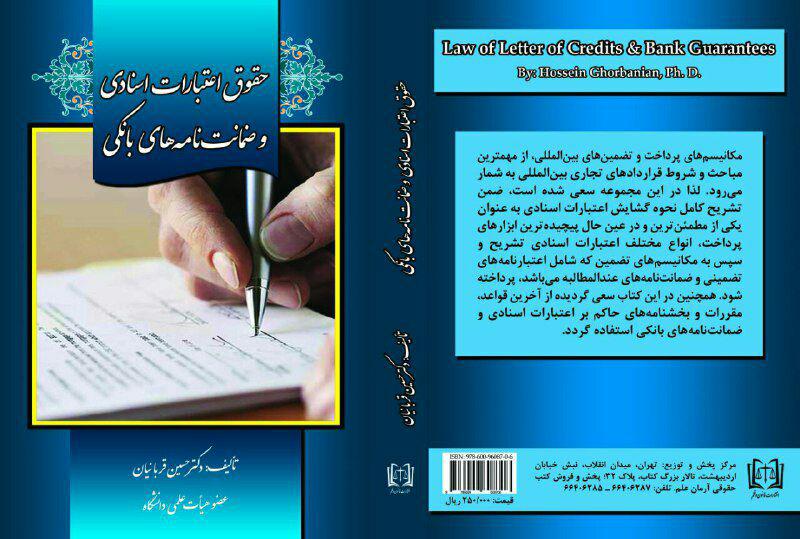تعریف حقوق تجارت بین الملل و تفاوت آن با تعاریف مشابهه
International Trade Law:
به مجموع قواعد و مقررارتی اطلاق میشود که حاکم بر آن دسته از روابط بازرگانی است که در عین حال که دارای ماهیت حقوق خصوصی است به کشورهای گوناگون مربوط میباشد . بر اساس این تعریف مباحث اصلی این رشته از حقوق به شرح زیر بیان شده است : خرید و فروش بینالمللی کالا که شامل مباحث تشکیل قرارداد ، قراردادهای نمایندگی و سایر ترتیبات فروش انحصاری میباشد ؛ اسناد قابل نقل و انتقال و اعتبارت تجاری بانکها ؛ قوانین مربوط به انجام فعالیتهای تجاری مربوط به تجارت بینالمللی ؛ بیمه ؛ حمل و نقل که شامل حمل کالا از طریق دریا ، هوا ، جاده و یا راه آهن میشود ؛ مالکیت صنعتی و حق مولف ؛ و داوری تجاری بینالمللی .
از این تعریف دو نکته مهم استنباط میشود : یکی اینکه حقوق تجارت بینالملل وقتی مطرح است که روابط بازرگانی از مرزهای ملی فراتر رفته و در نتیجه بیش از یک کشور در آن دخیل باشند . بنا بر این روابط بازرگانی و تجاری که در محدوده ی مرزهای ملی انجام میگیرد از حیطه و قلمرو حقوق تجارت بینالملل خارج میباشد حتی اگر این روابط تجاری بین ایالتهای گوناگون یک کشور انجام گیرد . دوم اینکه حقوق تجارت بینالملل شامل آن دسته از مباحثی است که دارای ماهیت حقوق خصوصی است و در نتیجه شامل مباحث یا ماهیت حقوق عمومی نمیباشد . مباحثی که ماهیت حقوق عمومی دارد ولی در عین حال بر روابط تجاری بینالمللی ناظر است ،جداگانه تحت عنوان حقوق اقتصادی بینالمللی بحث و از زیر مجموعههای حقوق عمومی محسوب می شود .
برای ادامه به ادامه مطلب مراجعه فرمایید
اطلاعیه سوئیفت در رابطه با توافق برسر تحریمهای ایران
17 January 2016
The Iran nuclear agreement (JCPOA) agreed by China, France, Russia, the United Kingdom, and the United States; plus Germany (P5+1), the EU and Iran on 14 July, and endorsed by UN Security Council Resolution 2231 on 20 July, requires that some sanctions on Iran are lifted, including the EU nuclear-related financial messaging restrictions that were exceptionally imposed on Iranian banks under EU Regulation in March 2012.
On 18 October, the EU Council adopted legislation, including a Council Implementing Regulation, which provides for the lifting of the related EU sanctions specified in the JCPOA, including these financial messaging restrictions, once the International Atomic Energy Agency (IAEA) has verified Iran's implementation of the nuclear-related measures set out in the JCPOA.
The EU has announced that the Implementing Legislation has taken effect. SWIFT has informed the relevant stakeholders about the necessary measures that need to be put in place to make it possible for those banks that are delisted by the Implementing Regulation to reconnect to SWIFT. As previously stated, those banks that are delisted by the Implementing Regulation will now automatically be able to reconnect to SWIFT, following the completion of our normal connection process (i.e. administrative and systems checks, connectivity and technical arrangements).
The Implementing Regulation does not repeal all EU sanctions on all Iranian banks, therefore SWIFT remains prohibited from providing specialised financial messaging services to the EU-sanctioned Iranian banks that remain listed under EU Regulation.
SWIFT is incorporated under Belgian law and has to comply with related EU regulation, as confirmed by the Belgian government. As a utility with a systemic global character, SWIFT has no authority to make sanctions decisions. Any decision to lift sanctions on countries or individual entities rests solely with the competent government bodies and legislators. Likewise, all decisions on the legitimacy of financial transactions under applicable regulations, such as sanctions regulations, rest with the financial institutions handling them, and their competent international and national authorities.
قانون باورها
این سوال موجب دگرگونی شدیدی در زندگی عدهای، از جمله پیتر دراکر (نظریه پرداز معروف مدیریت) شده است.
معلم او، در سیزده سالگی سوال پرسیده و گفته انتظار ندارم بتوانید به سوال من پاسخ دهید.
اما اگر در پنجاه سالگی نتوانستید پاسخی برای آن بیابید، در این صورت، حتم بدانید که زندگیتان را ضایع کردهاید.
آن سوال این است:
به خاطر چه چیزی باید از تو یاد کنند؟
قانون زندگی، قانون باورهاست
بزرگان زاده نمی شوند، بلکه ساخته می شوند.
برگرفته از کانال تلگرامی: پرورش افکار

